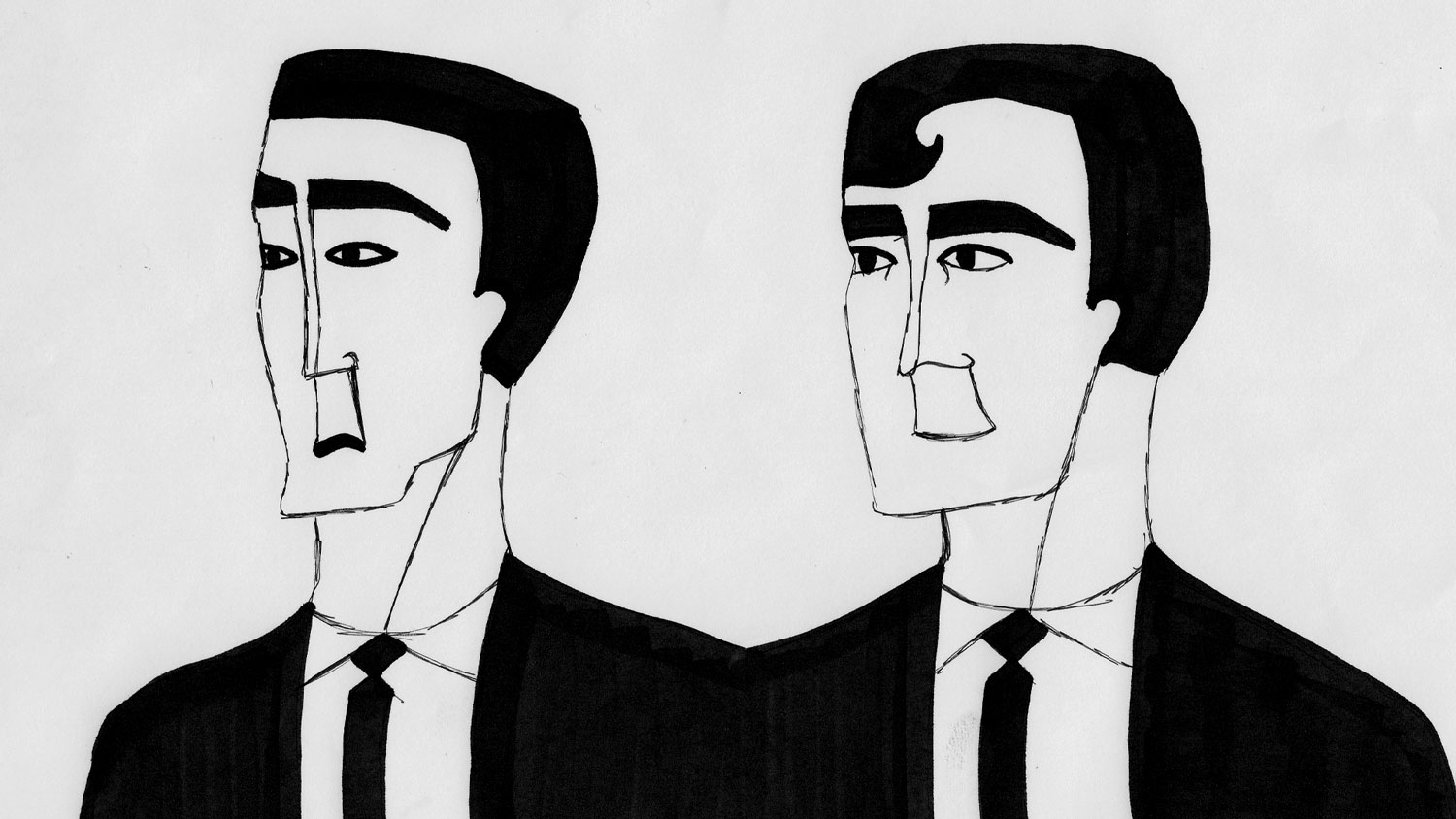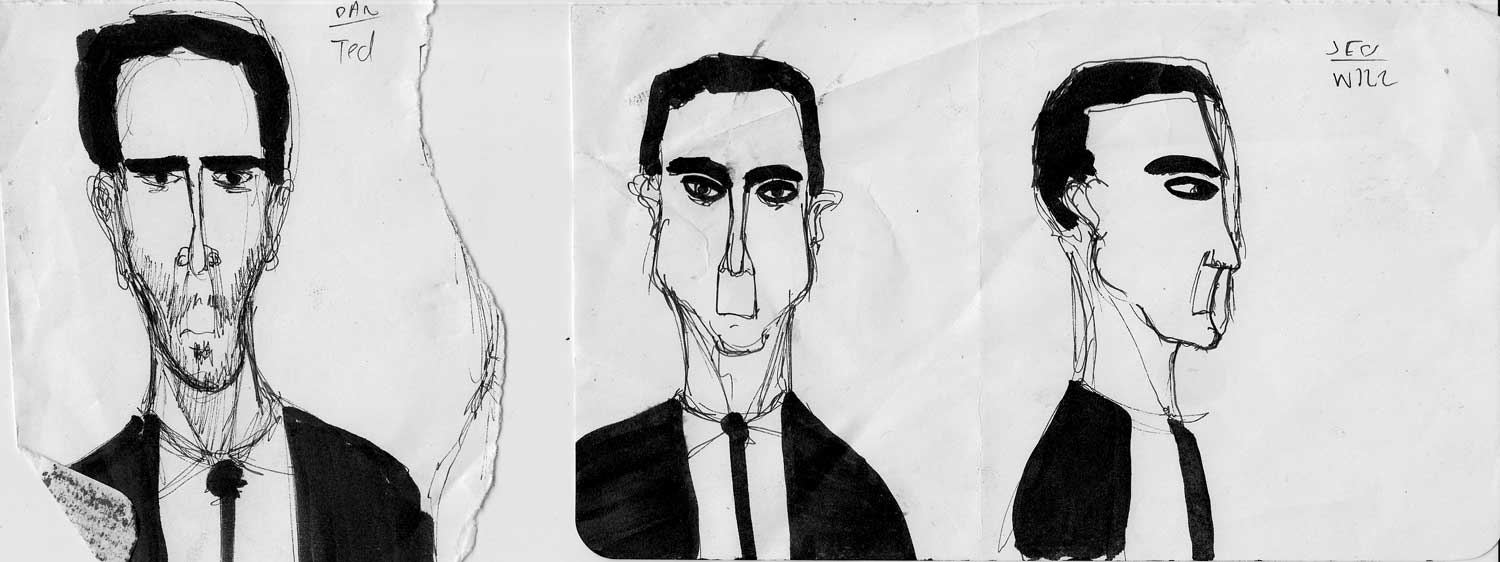It’s been a while since I visited a film festival, so my recent trip to the Encounters Short Film Festival was a timely reminder of how inspirational a gathering like this can be for filmmakers, curators and journalists alike. Leaving the festival with a list of filmmakers I wanted to talk to about their work as long as my arm, a month since the festival ended I finally get to share one of the films that has left an indelible mark on my memory ever since I first saw it. Sitting in a dark cinema in the Watershed venue in Bristol, the Late Lounge screening promised a twisted and extreme programme of films and it certainly didn’t disappoint. Leaving the screening with three films buzzing around my head, the next morning I found the nearest coffee shop with free wifi and poked around the internet to find out as much information as I could about this trio of shorts. Whilst I had little luck discovering much more on Toon Aerts trippy burglary tale Perfect Drug and Ninja Thyberg’s character-driven porno set fiction Pleasure, a quick email to friend of the site Sean Buckelew (who lends his vocal talents to the film) meant I was able to get in direct contact with the filmmaker behind the foul-mouthed short animation Trust & Estates. The kind of film that elicits gasps and unknowing looks of whether it’s acceptable to laugh from its audience, Jeanette Bonds’ hand-drawn animation is the tale of a restaurant conversation between four lawyers that quickly devolves into a grotesque and brutal comedy of cruelty and hypocrisy.
WARNING: THIS FILM CONTAINS STRONG AND SEXUALLY EXPLICIT LANGUAGE – IF YOU’RE AT WORK, I’D DEFINITELY ADVISE PUTTING HEADPHONES ON.
Eager to unravel the inspiration behind her CalArts graduating thesis film, discover how much of that conversation is actually real and find out how audiences are reacting to Trust & Estates, we grilled director Bonds to find out more:
Can you tell us a little bit about where the concept for Trusts and Estates originated?
I was planning on attending a friend’s concert in Santa Monica one evening and decided to treat myself to a nice and early dinner to avoid LA traffic. Being that it was early in the day, there was only one server at the restaurant and I was seated next to a table of twelve young businessmen. Their conversation started off quite casual and unnoticeable, but as time progressed and more drinks were consumed, the darker their conversation turned. I found myself being conflicted with what I overheard. At times I felt disgusted, horrified, and offended, but other times I couldn’t help but chuckle. By the time they prayed, the situation became far too anecdotal for me to be resentful or angry. The story was too fantastic not to recount.
At the time I exclusively made animated installations but decided to transition into classic 2D animation. I wanted to leave the CalArts Experimental Animation program having made at least one hand drawn animated film. I wasn’t certain what to make a film about. I went back into my old notebooks and found the transcription. One thing led to another and that’s how it all started. In the end, I suppose LA traffic is to blame.
I would say about 75% of what you hear in the film is directly from the overheard conversation.
I transcribed what the men said while they were saying it to the best of my ability. The remaining 25% of the dialogue heard in the film is improvised. There were certain lines the actors were required to say but weTrusts and Estates permitted and encouraged to improvise to ensure the dialogue sounded natural. Much of what the actual men said at the restaurant was significantly darker, more disturbing, and more violently literal than what the actors contributed. Not to mention the actual conversation went on for the duration of an entire meal. Not just a few minutes. I selected the best, or rather, the worst, of what I overheard. There were several anal jokes and rape jokes the actual men had said that I didn’t feel comfortable with putting into the script.
Considering the dark nature of the dialogue, how did your cast react to the script?
When the cast read the script, their eyebrows would raise and a grin would appear, or their eyebrows would raise and their jaws would drop. There’s no in-between. They found it simultaneously revolting and hilarious, but everybody felt the same about the ending – everyone was shocked, but they found it funny, fascinating and important. The situation was too absurd not to be real. It’s not just a film about men talking dirty, it’s the fact that they prayed at the end that made the actors eager and willing to participate – the irony was far too great. When casting, I had lines of actors running out the door trying to get the part, everybody wanted to play Ted, the initial aggressor, I even had a few women contact me asking me to change the cast so they could voice one of the men. I originally had a strict script with no deviations from the transcription, but because I could only transcribe so many people at once, I missed out on a lot of the competitive nuances of the original conversation. The first recording we made was lifeless, I hired professional actors and recorded each of them one by one, line by line, but again, it didn’t capture the competitive nature of the conversation I overheard. So I revised the script, shortened it significantly and recast and rerecorded it with all the actors in the same room. At first the new set of actors were not all that comfortable with improvising with one another, but as time progressed, the leader of the pack seemed to have bullied the rest just enough to drag out their competitive side. They had to modify the script so that it sounded natural for them and once they became comfortable with it, they really let loose. The group dynamic was essential.
What I’m happiest about is the support from women.
I was luckily enough to witness your film at the Encounters short film festival, along with a full audience and really enjoyed experiencing the film with others, how has the reaction been so far?
So far, fantastic. I had the opportunity to witness TAE in front of a rather large and diverse audience at LA ShortsFest and when I walked into the theatre I noticed the audience contained several women and well dressed older patrons. I was horrified as to how they’d react. My wonderfully supportive mother, stepfather and my actor Juan Riedinger were there to support me and I expected the audience to boo, walk out and curse at me during the Q&A, but in the end, I was more than happy with the response. What I’m happiest about is the support from women, they often come up to me afterward and thank me for making it and women of all ages have responded quite well to it. My greatest fear was that the women of the audience wouldn’t perceive it as a feminist film. But what shocks me most is the type of people who are offended by it, I’ve only encountered a few people truly offended by it and they’ve almost all been young men. I heard one man say “Why am I watching this” and “This is too much” while it was playing. He was angry, but couldn’t control his laughter, then when he saw them pray at the end, he was my biggest supporter.
Now you’re releasing Trusts & Estates online, are you expecting a different reception for your film than the one you’ve received at festivals?
It’s difficult to say. The internet communities are perpetually ready and waiting for battle. The state of PC filmmaking is odd and contradictory, filmmakers are often willing to show these sorts of crass objectifications as a commentary, but for some reason it’s not permissible to address it directly. I’ve seen countless filmmakers admonish others for creating politically incorrect works, but then see those same filmmakers laugh at some of the most sadistic content. Generally speaking, I think a large portion of the internet community identifies with this behaviour. The amount of times I’ve been on imgur and there’s an attractive 14 year old girl and all the top rated comments are ‘fap fap fap’ or ‘please be 18 please be 18 please be 18.’ Frankly, I think ‘fap’ is one of the most revolting written terms and anytime I see the term it feels as though it’s a personal violation. A lot of women can identify with the situation, I think.”
In many ways the film functions both as a feminist film and a potty mouth film.
“I’ve noticed most women consider it a feminist film and most men think of it as being funny, truthful and genuine in its hypocrisy. It is the greater hypocrisy of the men praying at the end that tends to unify viewers. It’s not just a display of male sexual competitiveness, it’s about a prevalent and relevant cultural hypocrisy. I’ve received nothing but support out in the field and hope for a similar response online. I certainly anticipate some backlash, but am hopeful for a positive response.
Visually, you opted for a pretty sparse visual style featuring stark black & white hand-drawn animation, was this a stylistic decision to put even more emphasis on the dialogue?
I initially wanted to emulate 1970’s political cartoons. I originally planned for backgrounds and even created CG models of the restaurant in Maya for reference, but once I started animating I realised it was essentially a talking heads film. As reliant as the film is upon dialogue, I think it’s dependent on facial expressions and characters even more so. I wanted the viewer to have the same sensation as that of an eavesdropper. I’ve heard a lot of people say that the characters are indistinguishable, but it’s impossible for me to look at it that way. Yes, they’re all business men in suits making them appear uniform, but their general shapes and behaviours are so individualised I can’t think of them as being congruent. I didn’t want to design one character that was a circle, one that was a square, or a triangle, as I tend not to be too keen on that type of character design. Again, I originally intended to emulate 70s’ political caricatures, but instead the style naturally evolved to something more graphic.
Can you tell us a little bit about your production methods?
I drew everything on paper with a Copic Multiliner pen, I’m not sure why exactly, but I decided I wasn’t allowed to use anything but that pen. I tend to establish arbitrary rules for myself with every project I make and in the end I think I spent a fortune on .1 multiliner nibs. I inked everything by hand with various black Copic markers, then I scanned everything in and sequenced all the images in After Effects. The film took 7 months to make. I started the script in November, recorded it and rerecorded in December, then animated intensively December through May.
What are you working on next?
I’m currently working on a hand drawn 2D short animation called ‘Hallgrímur og Jeremy’ and it should be coming out within the next couple months. I’m also working on an abstract film ‘Systematic Disease’, which is made with images of diseased eyes from my father’s med-school text books. I always need two projects to work on simultaneously; One that is tedious and methodical and the other that’s more intuitive. I try to satisfy each inclination equally.








